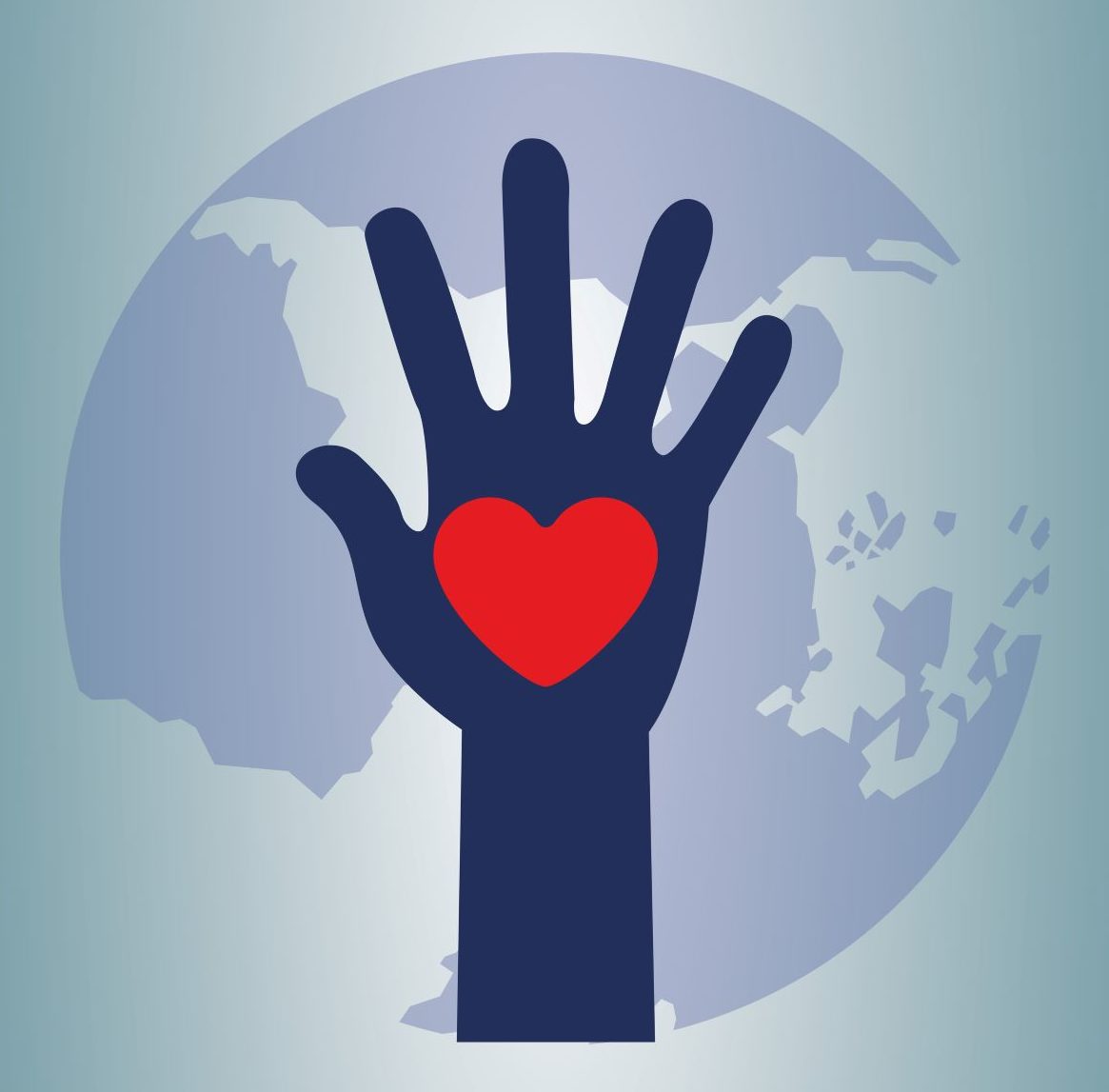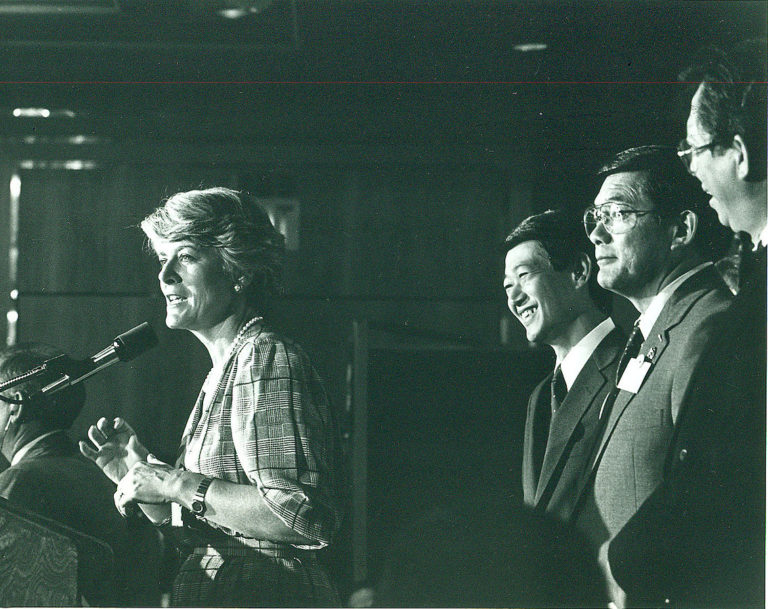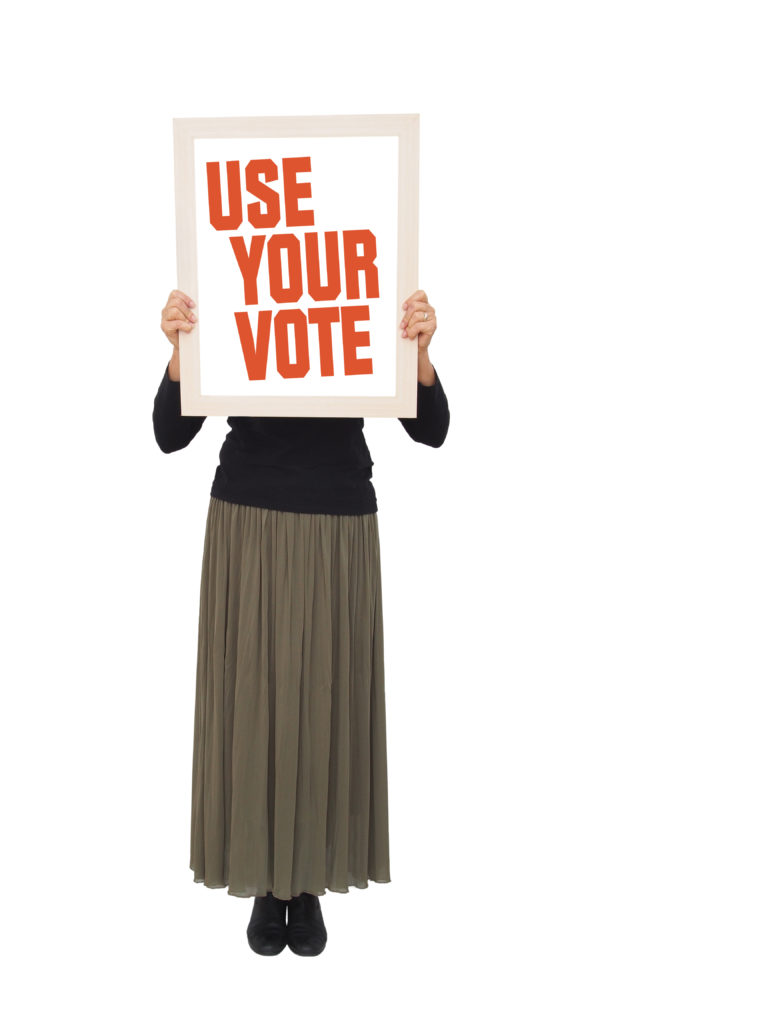Image: Geraldine Ferraro at the Democratic National Party Convention, 1984 Every four years, the Republican…
Celebrating Over Sixty Years of National Service

Spring is for celebrating national service! Over the next few weeks, America’s premier national service programs will commemorate their respective anniversaries. Peace Corps Week runs from February 27th to March 5th, while AmeriCorps Week will be from March 13th to 19th. A significant number of AmeriCorps members and Peace Corps volunteers experienced service disruptions associated with the pandemic, but these volunteers were reassigned to assist with COVID-19 response efforts. The unprecedented global health crisis of the last two years proves national service is needed more than ever.
Founded in 1961 by President John F. Kennedy, Peace Corps was created to promote world peace, foster diversity, and build international partnerships. In the six decades since its inception, more than 240,000 Returned Peace Corps Volunteers (RPCVs) have served in 141 countries across the globe for a two-year term of service. Peace Corps volunteers work on various projects, including environmental education, agriculture, and public health.
While Peace Corps focuses on strengthening America’s image abroad and provides support to developing nations, AmeriCorps alleviates poverty on the home front. President Lyndon B. Johnson established the Volunteers In Service to America (VISTA) program in 1964, which would later become a model for the modern AmeriCorps program. VISTA and subsequent AmeriCorps programs formally became a cornerstone of the larger AmeriCorps umbrella when President Bill Clinton codified AmeriCorps as a government agency in 1993. AmeriCorps members are placed with a non-profit host organization for a one-year term of service. AmeriCorps members tackle significant community needs, including food insecurity, disaster recovery, and conservation. To date, 1.2 million citizens have answered the call of AmeriCorps service.
Several servant leaders with experience in the Peace Corps have served or are currently in Congress. Among these leaders are Congressman John Garamendi (D-CA-3) who served in Ethiopia with his wife, Patti. Former Congresswoman Donna Shalala (D-FL) served in Iran. Former Congressman Joseph P. Kennedy III (D-MA) and Former Senator Christopher Dodd (D-CT), served in the Dominican Republic. Former Congressman Tom Petri (R-WI) served in Somalia. Former Congressman Joseph P. Kennedy III is the nephew of Sargent Shriver, President Kennedy’s brother-in-law and the first Director of the Peace Corps. Speaking at a Peace Corps event for the agency’s 50th anniversary, Former Senator Dodd shared that during his service he helped build a youth club, a maternity hospital, and two schools while living in the remote village of Moncion in 1966-1968. Former Congressman Sam Farr (D-CA) served in Colombia. Former Congressman Mike Honda (D-CA) served in El Salvador. As these anecdotes demonstrate, national service can be a natural gateway to elected office. In fact, the service to politics pipeline is an attractive path for many servant leaders. The non-partisan, non-profit organization New Politics Leadership Academy recruits and trains hundreds of veterans, Returned Peace Corps Volunteers, and AmeriCorps members to run for office nationwide.
Advocating for national service programs is often a bipartisan endeavor. Many members of Congress routinely reach across the aisle to fund and expand national service opportunities for millions of Americans eager to make a difference domestically or abroad. As a two-time AmeriCorps alumna, I understand the power of national service. National service expands one’s perspective and propensity to create substantive change. I am proud of my service and excited to celebrate nation service this spring.






